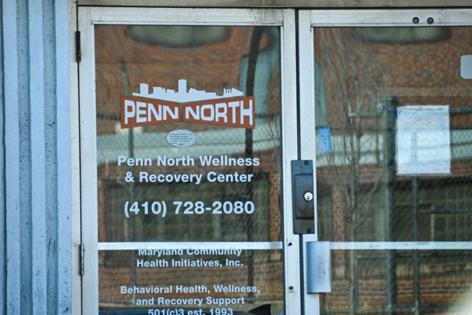Baltimore Opioid Restitution Fund gave $11 million to 3 delinquent nonprofits, data shows
Published in News & Features
BALTIMORE — The Baltimore City Opioid Restitution Fund paid out a combined $11 million in opioid settlement funds to three nonprofits that are financially delinquent with the state of Maryland, online data accessed Thursday by The Baltimore Sun shows.
Maryland OneStop data shows the three groups — Baltimore Safe Haven, Charm City Care Connection Inc., and Penn North Recovery — have a registration status of “delinquent,” meaning they have not satisfied all Maryland Secretary of State requirements for nonprofits to solicit funds. These requirements include completing an annual financial review or audit, and paying an annual fee of up to $300 based on the amount of charitable contributions, with late penalties starting at $25 per month, according to the Secretary of State’s website.
The registration status of a fourth group, We Our Us, was labeled “not current,” which is separate from delinquent and does not directly suggest noncompliance, on the online portal on Thursday. It received $1 million from the city’s$80.5 million settlement with Walgreens.
While financial information since the end of fiscal 2024 was not accessible via Maryland OneStop for any of the three delinquent nonprofits, the groups’ Form 990 tax filings show some executives took home healthy paydays — both in salary and bonus compensation. Baltimore Safe Haven and Charm City Care Connections each received more money from opioid settlements than they reported in total revenue for any recent years, the filings show.
Baltimore Safe Haven, an LGBTQ+ community support group, received $3 million this year from the city’s$152 million settlement with Cardinal Health. They reported $1.91 million in revenue for tax year 2023, of which $175,248 went to Executive Director Iya Dammons. Another $725,558 went to “other salaries and wages” while the group reported a net income of just $12,525, according to the filings.
Charm City Care Connection, a drug outreach group, got $5 million of a$45 million settlement with Allergan. They reported nearly $1.65 million in revenue for tax year 2023, of which its two executive directors took home a combined $116,780 in salaries, plus $110,614 in bonus compensation. $644,712 went to other employee salaries, and the group reported a net income loss of $97,248 for tax year 2023.
Penn North Recovery, which is also known as Maryland Community Health Initiatives Inc., received $3 million from Baltimore’s$80 million settlement with Teva. Its 2024 tax filings show the group had nearly $5.42 million in revenue, of which President and CEO William Brooks received $162,342. Brooks and other executives received $145,184 in combined additional compensation, while nearly $2.5 million went to other salaries and wages.
Penn North Recovery did not respond to The Sun’s request for comment, while Baltimore Safe Haven declined to comment. A representative for Charm City Care Connection referred questions to Bakari Atiba, the group’s director of community engagement and external affairs, who did not respond further.
In a statement to The Sun, Baltimore Mayor Brandon Scott’s office said the city “employed several best practices for grant administrations,” such as requiring groups to complete a risk assessment. No additional funds are currently earmarked for the three delinquent groups “beyond the funding that has already been designated to them in the previously negotiated settlements,” according to the statement.
“All grantees are required to adhere to monitoring activities including monthly performance and status reports, periodic site visits, document reviews, performance meetings, and corrective actions if needed to ensure adherence with the terms of the grant agreement,” the statement reads.
But taxpayer advocate David Williams told The Sun that the findings suggest more “accountability and extreme oversight” is needed to ensure the influx of opioid settlement funds to Baltimore does not become a “wasted opportunity.”
“If you are a nonprofit, and if you are not in good standing with the state, you should never have access to any taxpayer money or any settlement money, full stop,” said Williams, president of the D.C.-based Taxpayers’ Protection Alliance. “…That’s got to be the first consideration, and there shouldn’t even be a second question after that.”
_____
©2025 The Baltimore Sun. Visit at baltimoresun.com. Distributed by Tribune Content Agency, LLC.







Comments